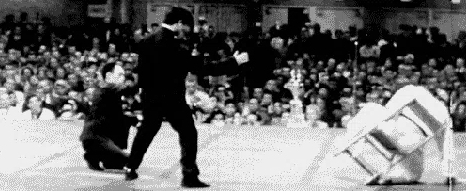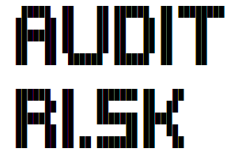Mixed Martial Arts and Internal Audit Heuristics: A Dynamic Interplay
Some of Bruce Lee’s philosophies applied to Internal Audit
Introduction
Navigating the ever-changing landscape of internal auditing can often feel like engaging in a mixed martial arts (MMA) bout, where adaptability, anticipation, and strategic acumen dictate success. The philosophies of Bruce Lee, encapsulated in his Tao of Jeet Kune Do, provide a rich tapestry of parallels that resonate with the principles of internal auditing. Lee’s advocacy for fluidity, efficiency, simplicity, and continuous learning offers a unique lens through which we can refine and enhance audit practices.
Bruce Lee’s Tao of Jeet Kune Do
Bruce Lee’s martial arts philosophy promotes adaptability, simplicity, and the elimination of the superfluous. His advice to “Adapt what is useful, reject what is useless, and add what is specifically your own” is particularly resonant for internal auditors who must sift through vast amounts of data to focus solely on what is relevant for their audit objectives. This principle of simplicity guides auditors to streamline processes and reduce complexities, which not only makes the audit more effective but also enhances clarity and focus.
Simplicity and Efficiency in Auditing
Central to Bruce Lee’s approach was the principle of expressing the maximum amount of efficiency through the simplest of actions. This approach is vital in internal auditing, where the complexity of information can be overwhelming. Auditors can take a page from Lee’s philosophies by focusing on the most straightforward and direct paths to achieve audit objectives. By reducing unnecessary procedures and focusing on key risk areas, auditors can improve their operational efficiency and effectiveness, ensuring that their efforts are concentrated where they can have the greatest impact.

The Role of Heuristics in Internal Auditing
Heuristics, or mental shortcuts, are essential for auditors to make efficient decisions in complex and time-sensitive situations. Similar to a fighter using instinct and experience to make swift decisions in the ring, an auditor uses heuristics to navigate the multifaceted audit landscape. However, just as a martial artist must avoid becoming predictable, auditors must also guard against biases inherent in heuristic methods, continually questioning their assumptions to maintain audit effectiveness. Heuristics are not to be avoided entirely as they are what make us unique humans.
Adapting and Evolving with the Environment
Just as Bruce Lee emphasized being like water—adaptable and ever-evolving—so too must auditors be flexible and responsive. The business environment is constantly in flux, requiring auditors to adapt their approaches to new regulations and emerging risks. This adaptability ensures that auditing practices remain both relevant and robust, capable of identifying and addressing new challenges as they arise.
Take Away
By drawing on Bruce Lee’s philosophies, internal auditors can foster a culture of simplicity, efficiency, and continuous improvement, enhancing both their personal performance and the strategic value of their audits. Lee’s principles of adaptability, straightforwardness, and perpetual learning are not merely martial arts strategies but foundational elements that can elevate your practice in internal auditing and beyond. As auditors embody these traits, they can ensure that their practices are not only adaptable and efficient but also deeply aligned with the evolving needs of their organizations. In this way, they uphold the integrity and accountability essential to their profession. Even the most disciplined and experienced auditor has much to learn.
